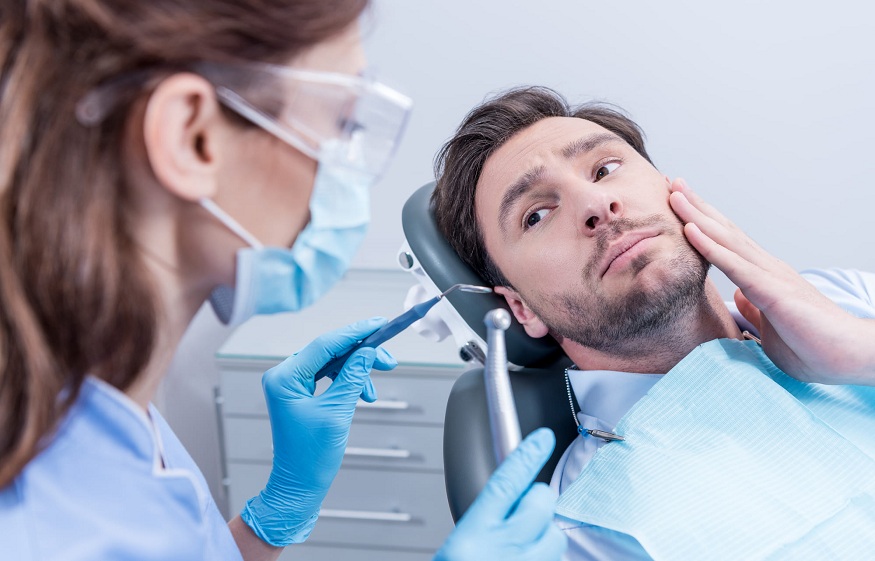
Abdominal pain: what to do?
admin
- 0
You have probably already had a stomach ache: in fact, abdominal pain is one of the most common complaints in adults and children. It can be caused by a multitude of factors and although often benign, it can also be the symptom of serious pathologies. Our general practitioners and gastroenterologists explain the causes, symptoms and treatments of abdominal pain.
What is abdominal pain?
Abdominal pain is pain that occurs in the belly area, between the chest and pelvic area. It can be acute or chronic, mild or severe, and sometimes be a sign of an underlying health problem. Fortunately, it is not always serious and can be treated with lifestyle changes or possibly with medication.
What are the different types of abdominal pain?
There are different types of abdominal pain, which can be accompanied by several symptoms such as nausea , vomiting, intestinal transit problems or fever .
Pain related to digestion
Stress, a diet that is too rich, food intolerance, poor secretion of the elements necessary for digestion, or damage to the stomach lining can, among other things, lead to digestive disorders. These pains are often felt in the upper part of the abdomen, at the stomach level, and can be expressed by several digestive symptoms such as heartburn , gastroesophageal reflux , transit disorders, nausea and vomiting, or the presence of too much gas in the stomach or intestines leading to bloating .
Pain related to abdominal organs
There are many organs inside the abdomen, and therefore many possibilities for abdominal pain. Thus, specific conditions of these organs such as the liver, gallbladder, pancreas, intestines or kidneys can cause local or diffuse pain. This pain can be accompanied by nausea, vomiting, diarrhea , constipation but also fever or jaundice, which should lead to consulting a doctor quickly.
Gynecological pain
Related to the menstrual cycle , menstrual pain is often felt in the lower abdomen in women before or during their period and may be accompanied by cramping in the lower abdomen. Pelvic (lower abdomen) pain may also be related to endometriosis , infection, ovarian cysts, early pregnancy, or an ectopic pregnancy.
Musculoskeletal pain
Musculoskeletal disorders (MSDs) are certain conditions affecting the joints, muscles and tendons. They can cause pain that is sometimes very disabling or even incapacitating, and can also be expressed by abdominal pain.
Psychosomatic pain
The phenomenon of somatization is characterized by the expression of psychological disorders through physical symptoms. Somatization often results from stress , anxiety or depressive symptoms . The pain caused is often localized in the abdomen and described as generalized stomach aches. It is essential, however, to ensure, with the help of a doctor, that there are no pathologies in the intra-abdominal organs before concluding on this cause.
What causes abdominal pain?
Abdominal pain can be caused by a wide variety of factors. Some of the most common causes include:
gastrointestinal problems, such as stomach ulcers, episodes of constipation and diarrhea, gastritis , Crohn’s disease and irritable bowel syndrome ;
viral, bacterial and parasitic infections such as flu , colds , gastroenteritis or salmonella;
gynecological conditions in women, such as fibroids, endometriosis or pelvic inflammatory disease (PID);
stones, small crystals that can form in the kidneys or gallbladder ;
inguinal hernias , which occur when part of the intestine protrudes from its usual location and slips through an opening in the abdominal wall in the groin.
What symptoms can accompany abdominal pain?
Depending on what is causing it, abdominal pain may be accompanied by some of the following symptoms:
What are the different treatments available?
Treatments for abdominal pain depend on the underlying cause. Here are some of the most common treatments.
How to prevent abdominal pain?
Although abdominal pain can be caused by many different factors, there are some easy steps you can take to reduce your risk of stomach aches. Here’s what our doctors recommend:
Avoid foods that trigger abdominal pain: If you are sensitive to certain foods, avoid them as much as possible. Fatty or spicy foods, as well as tobacco and alcohol can promote the onset of abdominal pain;
limit consumption of carbonated drinks: they can cause bloating;
Learn to manage stress: it can actually make abdominal pain worse. Some meditation or breathing techniques can help you better manage your stress;
drink enough water to avoid dehydration ;
Avoid eating late at night: Eating just before bed can disrupt digestion and cause abdominal pain.
When to consult?
It is important not to ignore abdominal pain, as it can be a sign of serious health problems. Therefore, you should consult a doctor promptly if you notice:
persistent or severe abdominal pain, especially if accompanied by other symptoms such as nausea, vomiting, diarrhea, constipation or fever;
Early diagnosis and treatment can help prevent complications and improve daily quality of life.
Who to consult?
If you have abdominal pain, it is recommended that you first see your GP or primary care physician. They will perform a physical examination and ask you about your symptoms to determine the possible cause of the pain. Depending on the results of the examination, they may recommend additional tests such as blood tests , imaging tests, a colonoscopy or endoscopy to help with the diagnosis.
If the pain is related to a digestive disorder, the general practitioner may refer you to a gastroenterologist for specific treatment. If the pain is related to a menstrual disorder, a gynecologist may be consulted for appropriate treatment.
At Livi, our general practitioners, gastroenterologists and gynecologists are available 7 days a week to listen to you and support you.


